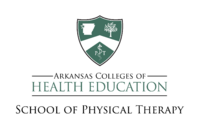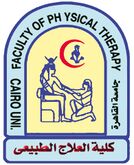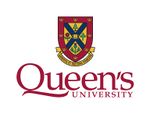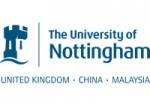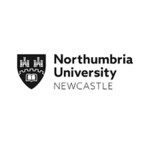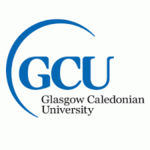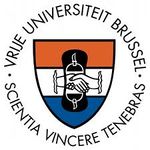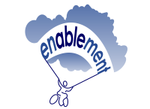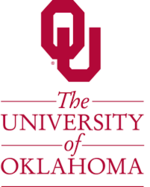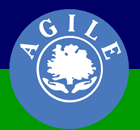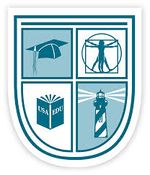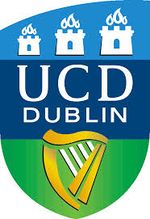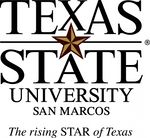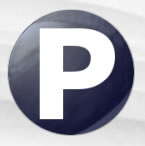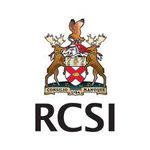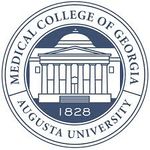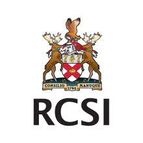Projects
About Our Projects[edit | edit source]
Content Development Projects have been contributing to the growth of Physiopedia since it launched in 2009.
Physiopedia is a wiki. A wiki is a collection of web pages that can be collaboratively edited with no specialist tools and very little technical know-how. As such, Physiopedia is perfectly suited to collaborative group authoring and offers a place for Physiotherapists and Physical Therapists throughout the world to contribute, share, and gain knowledge as part of a formal project.
This page outlines past and present Content Development Projects with Physiopedia. Projects can take shape as either Educational Projects, Professional Organization Projects or Clinical Projects.
- Educational Projects - involving educational establishments for pre and post graduate students as part of their formal university or college education.
- Professional Organization Projects - run by professional organisations and involving their members for professional development opportunities.
- Clinical Projects - led by clinics as professional development projects for staff and visiting students.
“It was a great experience for learning how to contribute to our profession in a very accessible way.” Anonymous student feedback, Bellarmine University, USA
"....I must say it's a pretty cool way to learn". Kathleen Nestor, Physical Therapy student, USA
The feedback that we have gathered from previous projects has been overwhelmingly positive. Project participants really appreciate the fact that their work does not just get filed away for no-one else to see, but is making a positive and lasting contribution to the profession through it's addition to this resource.
"I would not hesitate in recommending the use of the Physiopedia site to build and share work that could be of use across the globe." Bhanu Ramaswamy, AGILE Project
Highlighted below are current projects that are taking place within Physiopedia, and also previous projects that have been completed.
If you would like to organise a project within Physiopedia, please do not hesitate to get in touch.
Physiopedia Content Development Projects[edit | edit source]
Anyone can get involved in these projects:
Understanding Basic Rehabilitation Techniques. This project aims to develop content that will facilitate understanding of basic rehabilitation techniques, it is aimed at health and rehabilitation professionals who are involved in assessment and management of rehabilitation. We intend to create practical, credible and thought-provoking content that and health care professional will find useful to effectively work within rehabilitation services and will guide and form part of the content for the Understanding Basic Rehabilitation Techniques massive open online course. Go to the project page... to find out more.
Understanding Rehabilitation. This project aims to develop content related to understanding rehabilitation. These pages have been developed as a collaboration between Physiopedia and the USAID funded Learning, Acting, and Building for Rehabilitation in Health Systems (ReLAB-HS). The aim of the project is to create content, relating to rehabilitation and health systems, and increase access to high quality rehabilitation care to improve the functioning of individuals worldwide. We intend to populate the site with practical, credible and thought-provoking information and knowledge that physiotherapists should have to effectively work within rehabilitation services. Much of this content development has been guided by Rehabilitation 2030: A Call for Action. Go to the project page... to find out more.
Assistive Technology. This project aims to develop content related to assistive technology and rehabilitation. We intend to populate the site with practical, credible and thought-provoking information and knowledge that physiotherapists should have to effectively provide rehabilitation within these complex contexts. Much of this content development has been guided by the Priority Assistive Products List . Go to the project page... to find out more.
Physiotherapy and Refugee Education Project Content Development Project. This project aims to develop content related to refugee health. We intend to populate the site with practical, credible and thought-provoking information and knowledge that physiotherapists should have to effectively work with people with refugee experience. Much of this content development has been guided by the Physiotherapy and Refugee Education Project (PREP) and will form part of the content for the PREP online course which will take place from 18 January 2021. Go to the project page... to find out more.
The Women's Health Division's Content Initiative. The Women’s Health Division (WHD) is a not-for-profit division of the Canadian Physiotherapy Association (CPA) have partnered with Physiopedia to help improve and updated the current women's and pelvic health content on Physiopedia to help ensure that physiotherapists from across the globe have access to current women's and pelvic health resources. Go to the project page... to find out more.
The International Committee of the Red Cross (ICRC) Content Development Project. This project aims to develop content from the ICRC Physiotherapy Standards Workshop. Go to the project page.. to find out more
Coronavirus. The Coronavirus Content Creation Project is an initiative by Physiopedia to create a new section in Physiopedia on the Pandemic that was declared on the World Health Organisation on 11th March 2020. The aim of this new section is to educate and direct health professionals in the control of the spread of the virus and the management of persons diagnosed Coronavirus Go to the project page... to find out more.
Spinal Cord Injury. The Spinal Cord Injury Content Creation Project is an initiative of Physiopedia aims to populate a new section of Physiopedia with practical, credible and thought-provoking information on all aspects of management of individual with spinal cord injury. Go to the project page... to find out more
Physical Activity. The Physical Activity Project aims to develop and update the Physical Activity section in Physiopedia with up to date evidence based research. Anyone can participate in this project Go to the project page... to find out more.
Cerebral Palsy. The Cerebral Palsy Project aims to develop pages in Physiopedia with up to date evidence based information on Cerebral Palsy. Anyone can participate in this project Go to the project page... to find out more.
Clubfoot. The Clubfoot Project aims to develop pages in Physiopedia with up to date evidence based information on Clubfoot. Anyone can participate in this project Go to the project page... to find out more.
Wheelchair Service Provision. The Wheelchair Service Provision Project aims to develop pages in Physiopedia with up to date evidence based information on Wheelchair Services. Anyone can participate in this project Go to the project page... to find out more.
Traumatic Brain Injury. This project aims to develop content in the Traumatic Brain Injury Section of Physiopedia. We intend to populate the site with practical, credible and thought-provoking information on all aspects of management of individuals with a traumatic brain injury. Go to the project page... to find out more.
Anatomy Project This project was created following a review in 2016 which identifed further work on the anatomy content on Physiopedia was needed. It found poor coverage of anatomy across all of the disciplines of physiotherapy. When focusing on musculoskeletal anatomy there was 12% coverage of bones, 40% coverage of joints, and 35% coverage of muscles, 2% coverage of nerves and 8% coverage of ligaments. The review found that anatomy pages on Physiopedia rarely report on clinical skills of assessment or treatment which would make our content stand out for physiotherapists. Since this time the anatomy content on Physiopedia has increased and this project is now closed. Go to the project page... to read more.
Ethics Content Development Project. This project aims to develop content for the ethics section in Physiopedia. This content will also be used as part of the Ethics Courses in Plus . We intend to populate the site with practical, credible and thought-provoking information on all aspects of Ethics and how it relates to our physiotherapy practice where ever we may be in the world. Go to the project page... to find out more.
If you still have more questions, feel free to look through our Projects FAQs page, or contact Kim at:[email protected].
Current Projects[edit | edit source]
These projects are created for a specific group of individuals and are by invite only:
Arkansas Colleges of Health Education School of Physical Therapy Musculoskeletal[edit | edit source]
This project forms part of the Musculoskeletal Physical Therapy 1 is a 1st year course that introduces physiotherapy students to musculoskeletal dysfunctions. This project will focus on a knowledge and information that supports musculoskeletal dysfunction and rehabilitation either through advancing current articles or creating new articles of information. Go to the project page... to find out more.
Physical Therapy Cairo University[edit | edit source]
This project forms a part of the Excellence and Innovation Unit (EIU) objectives at the Faculty of Physical Therapy Cairo University to facilitate an environment within the college that encourages and supports student research projects by providing resources, mentorship, and opportunities for students to engage in academic investigations, develop critical research skills, and contribute to their fields of study. This project will focus on the Software Applications in Musculoskeletal Assessment. Go to the project page... to find out more.
Integrative Lifestyle Medicine[edit | edit source]
This project looks at how lifestyle factors can influence health and wellbeing. By promoting lifestyle changes and healthier living through nutrition, physical activity, disease management many lifestyle related diseases can be prevented. The focus is to develop content related to improving health and wellbeing through lifestyle changes and medicine to promote healthier living.
Lifestyle Medicine is focused on evidence based solutions to improve the health and wellbeing of individuals and societies. According to the World Health Organisation (WHO) over 71% of all deaths globally are related to non-communicable diseases, such as diabetes, heart disease, cancer, respiratory and musculoskeletal conditions and mental health issues. Many of these non-communicable diseases are influenced by high risk behaviours that can be modified by a change in lifestyle choices. Go to the project page... for more information.
Environmental Physiotherapy Content Development Project[edit | edit source]
This project aims to develop content related to the many links between human health, functioning, physiotherapy and our planetary environment. To date, particularly our planet’s natural environment has been thought of as separate and unrelated to physiotherapy practice, research and education. Ongoing environmental degradation and increasing associated health impacts are now clearly showing that this is no longer a tenable position. Supported by the Environmental Physiotherapy Association, the Environmental Physiotherapy Content Development Project seeks to inspire thinking and develop content about the many different ways that the environment is related to virtually every aspect of physiotherapy practice, research and education. Go to the project page... for more information
Queen's University[edit | edit source]
This project forms part of the "Neuromotor Function II" course in the first year of the two year Master of Science in Physical Therapy (MScPT) program at Queen's University, Kingston, Ontario, Canada. Students will work in groups and choose topics in relation to a neurological condition that affects adults and causes movement problems, and/or assessment, rehabilitation or exercise topics that relate to those neurological conditions in adults. Students may either create new pages or review and update existing Physiopedia articles in this area. Go to the project page... to find out more.
University of Nottingham[edit | edit source]
This project forms part of the first Spinal Rehabilitation module in the three year undergraduate physiotherapy course (BSc (Hons) in Physiotherapy) at the University of Nottingham. Students will choose topics in relation to spinal rehabilitation and review and update Physiopedia articles in this area. Go to the project home page...
Physical Therapy Knowledge Broker Project[edit | edit source]
This project was supported by the University of British Columbia (BC) Department of Physical Therapy, The Physiotherapy Association of BC, Vancouver Coastal Research Institute and the Providence Healthcare Research Institute. The pages developed are an aid to clinicians who want to provide evidence-informed management for their patients.It has been developed by a team of researchers, educators and expert clinicians that make up the BC Physical Therapy Tendinopathy Task Force, it includes Dr. Joseph Anthony, Allison Ezzat, Diana Hughes, JR Justesen, Dr. Alex Scott, Michael Yates, Alison Hoens. Go to the project home page.
Past Projects[edit | edit source]
Rehabilitation in Disaster and Conflict Situations[edit | edit source]
This project aims to develop content related to rehabilitation in disaster and conflict situations. These pages have been developed as a collaboration between Physiopedia and the USAID funded Learning, Acting, and Building for Rehabilitation in Health Systems (ReLAB-HS). The aim of the project is to create content, relating to rehabilitation and health systems, and increase access to high quality rehabilitation care to improve the functioning of individuals worldwide.We intend to populate the site with practical, credible and thought-provoking information and knowledge that physiotherapists should have to effectively provide rehabilitation within these complex contexts. Much of this content development has been guided by the Emergency Medical Teams: Minimum Technical Standards and Recommendations for Rehabilitation, the Field Handbook on Early Rehabilitation In Conflicts and Disasters, the Rehabilitation in Sudden Onset Disasters and the Rehabilitation Treatment Planning for Common Conflict and Emergency Related Injuries Performance Support Tool from Humanity & Inclusion. Go to the project page... to find out more.
The University of Waterloo[edit | edit source]
This project forms part of the Clinical Biomechanics of Musculoskeletal Conditions (KIN 470) is a 4th year, seminar course that encourages the application of knowledge and skills acquired in the 100-300 level courses and provides an opportunity to further develop skills related to knowledge acquisition and communication. In this section we will develop skills including literature searching, synthesis and interpretation, oral presentation and writing skills, while focusing on the topic of clinical biomechanics of musculoskeletal conditions. Go to the project page... to find out more
Redeemer's University Physioculture Journal Project[edit | edit source]
This project aims to improve student scientific communications, self-directed learning and community service to the student community. The project will motivate students to develop the habit of teamwork to achieve a common goal in a corporate environment. It will also broaden their horizon on physiotherapy scientific subjects. Go to the project page... to find out more.
Northumbria University[edit | edit source]
This project forms part of the MSc two-year accelerated programme at Northumbria University in the UK. Students will investigate a contemporary area of physiotherapy practice (of their own choosing) within a general theme of innovation, service development, and so forth, and to develop a Physiopedia resource to support this. Go to the project home page... for more information.
Cards For Humanity[edit | edit source]
This project forms part of a research project undertaken by Jenny Setchell, an NHMRC Research Fellow at the University of Queensland and Barbara Gibson, Professor at the University of Toronto. The cards were primarily designed as a tool for working with children who have long-term conditions, but they can actually be used for all age groups and in many different settings. For more information about the cards see their Physiopedia page here.
Queen Margaret University[edit | edit source]
Led by Judith Lane, this project has been developed for second year students on the MSc (pre-registration) Physiotherapy programme at Queen Margaret University, Edinburgh, UK, in partial fulfilment of the requirements for the module ‘Current and Emerging Roles in Physiotherapy Practice’. The aim of the module is to prepare learners for emerging physiotherapy roles in response to changing healthcare needs, evolving contexts of delivery of practice and government health targets. Go to the project home page...
Glasgow Caledonian University[edit | edit source]
This project has been developed by year 1 students on the MSc (pre-registration) Physiotherapy programme at Glasgow Caledonian University as part of their Cardiorespiratory Therapeutics module. The module aims to develop an understanding of the normal structure and function of the cardiorespiratory system from an anatomical and physiological perspective considering the life span and adaptions with aging. Go to the project page... to find out more.
Winston-Salem State University[edit | edit source]
This project is led by Doris Molina-Henry, PhD, from the Winston-Salem State University (WSSU). This is a project for physiotherapy students from WSSU, who will search current literature and develop a physical therapy relevant synopsis of drug regimens used in common conditions encountered by physiotherapists. The project is intended to describe drug regimens of major pathologies, such as spinal cord injuries, rheumatoid arthritis, hypertension and Parkinson's, among others. Within each regimen, drug classes will be discussed, the mechanism of action of the drug, brief pharmacokinetics of the drugs and implications of the drugs for physiotherapy. Go to the project home page...
Vrije University Brussel, Brussels[edit | edit source]
Led by Peter Vaes, This project was created by and for the students in the Rehabilitation Sciences and Physiotherapy program of the Vrije Universiteit Brussel, Brussels, Belgium.
Go to the project home page...
Hambisela Project[edit | edit source]
The Hambisela project is run by Lurinda Prinsloo. This is an already existing project which aims to empower and develop the skills of therapists, parents and caregivers of children with cerebral palsy in the community. This initially was developed to run in the community, which has been successful. As the Hambisela project team are committed to reaching out and sharing this information and training with as many people as possible they have teamed up with Physiopedia to develop their modules into Physiopedia pages. Go to the project page to find out more.
Enablement[edit | edit source]
The Enablement project is a content development project which has involved transforming an online course on Community Based Rehabilitation and Cerebral Palsy in low - middle income countries. This course was developed by Roelie Wolting a specialist paediatric Physiotherapist in CBR in low recourced countries.
Bellarmine University[edit | edit source]
Elaine Lonnemann's students at Bellarmine University are currently completing the project - Physiopedia Assignment for the Course: Teaching and Learning in Physical Therapy Practice
Bellarmine University[edit | edit source]
Elaine Lonnemann's students at the Bellarmine University have created a plethora of new pages related to their second year project - Pathophysiology of Complex Patient Problems.
Physiotherapy Pain Association[edit | edit source]
The PPA Pain Project aims to populate the site with practical, credible and thought-provoking information on the science of pain, its assessment and management. Go to the project page... to find out more.
Des Moines University[edit | edit source]
Led by Shannon Petersen, students from the Des Moines University Physical Therapy program will be working in groups to create evidence based articles in Physiopedia. Go to the project home page...
University of Oklahoma[edit | edit source]
This project was created by and for the students in the Department of Rehabilitation Sciences at the University of Oklahoma Health Sciences Center and is a part of the curriculum. This project is a graded component of the PHTH 8192: Exercise Science I course in the Doctor of Physical Therapy program. This course is designed to introduce students to the basic science principles of exercise science and physiology to form a background that leads to further development of the applied skill of exercise prescription. Go to the project page... to find out more.
University of Oklahoma[edit | edit source]
This project was created by and for the students in the Department of Rehabilitation Sciences at the University of Oklahoma Health Sciences Center and is a part of the curriculum. This project is a graded component of the PHTH 9132: Community Assessment and Planning (Sports section) course in the Doctor of Physical Therapy program at University of Oklahoma. This course is designed to advance the students’ knowledge in the area of sports medicine and related topics.Go to the project page... to find out more.
University of Nottingham[edit | edit source]
This project forms part of the University of Nottingham’s postgraduate modules in Contemporary Practice in Manual Therapy. Students will be creating evidence based blogs and presentations which will be hosted here on Physiopedia. There are two pages for the two different aspects to this project, see them here and here.
STOPS[edit | edit source]
The STOPS trial to prove that high quality Physiotherapy is effective was established in 2009 by Dr Jon Ford. In relation to this project the STOPS reasearch team have collated a large amount of information about back pain which they plan to contribute to Physiopedia through this project. Go to the project home page...
AGILE[edit | edit source]
Following on from the AGILE Project the IPTOP Project is the second phase of a collaborative effort from physiotherapists around the world to develop the Older People section of Physiopedia. Go to the project page... to find out more.
The World Physiotherapy Network for Amputee Rehabilitation[edit | edit source]
The World Physiotherapy Network for Amputee Rehabilitation (AR) is a Professional Network of the World Confederation of Physical Therapy. It is pleased to present this project that contributes to development of the Amputee section in Physiopedia and the which will be used for the Amputee Rehabilitation MOOC (free open online course) in 2015. Go to the project page... to find out more.
APPDE[edit | edit source]
The APPDE Project is a collaborative effort of physiotherapists involved in the Association of Physiotherapists in Parkinsons Disease Europe to specifically develop the Parkinsons Disease page and related pages with the latest up to date information and evidence. Go to the project page... to find out more.
University of St. Augustine[edit | edit source]
Elaine Lonnemann's students at the University of St. Augustine in St. Augustine Florida are currently completing the project - Worldwide Physical Therapy Practice: a focus on Primary Care Physical Therapy
University of Limerick[edit | edit source]
This project has been created as part of the Impairment and Disability Year 4 module at the University of Limerick which results in the production of an evidence based handbook which will be published in Physiopedia. Go to the project page... to find out more.
University College Dublin[edit | edit source]
Physiopedia has been inovatively used by final year Physiotherapy students at the University College Dublin, Ireland.
Go to the project page... to find out more.
The Jackson Clinics Residency Project[edit | edit source]
Led by Kris Porter, the expectation for this project is that there will be an extensive and a comprehensive review of all available literature on Resident Directed Community Service Learning. Residents will complete 32 hours of “Resident Directed Community Service Learning” which will be to create articles for Physiopedia. Go to the project home page...
Orthopaedic Manual Physical Therapy Fellowship project[edit | edit source]
Led by Dan Rhon, This project was created by and for the Fellows of theEvidence In Motion Orthopaedic Manual Physical Therapy Fellowship Project. Go to the project home page...
Bellarmine University[edit | edit source]
The clinical educators affiliated with the Physical Therapy Program at Bellarmine University are currently completing the project - Clinical Case Presentations Continuing Education Opportunity for Physical Therapists with Dr. Elaine Lonnemann
Bellarmine University[edit | edit source]
Elaine Lonnemann's students at the Bellarmine University will research different aspects of Physical Therapy Practice Acts in the United States and present the information based on his/her analysis. Read more about this project.
Texas State University[edit | edit source]
This project was created by and for the students in the Doctor of Physical Therapy Program at Texas State University -San Marcos, and is part of the Orthopaedic curriculum. Go to the project home page...
Open Physio[edit | edit source]
This project is a merger of the physiotherapy wiki project, Open Physio (from South Africa) and Physiopedia. Read more about this collaboration...
Temple University[edit | edit source]
Led by Scott Burns, This project was created by and for the students at Temple University in Philadelphia, and is part of the Orthopaedic curriculum. Go to the project home page...
AGILE[edit | edit source]
Led by Bhanu Ramaswamy, AGILE will be working on creating a structured and evidence based Older Peoplesection of Physiopedia. The section will be divided in numbers of articles under the sub-headings: Policy, Physiology and Physiotherapy and eventually aims to involve the international community of physiotherapists and physical therapists working with older people. Go to the project home page...
Royal College of Surgeons[edit | edit source]
Aileen Barrett's students at the Royal College of Surgeons in Ireland have created a new page on The role and function of Primary Care Teams in Ireland as part of an elective module in their foundation year. See more about their project here...
Evidence in Motion[edit | edit source]
Evidence in Motion Residents each added two pages of new content in Physiopedia as part of the capstone course in their residency training. See more here...
Medical College of Georgia[edit | edit source]
DPT students at the Medical college of Georgia have just completed a whole new set of pages as part of their spinal course. See more here...
Royal College of Surgeons[edit | edit source]
Aileen Barrett's students at the Royal College of Surgeons in Ireland have created new pages for Apley's Test and Auscultation as part of an elective module in their foundation year. See more about their project here..
